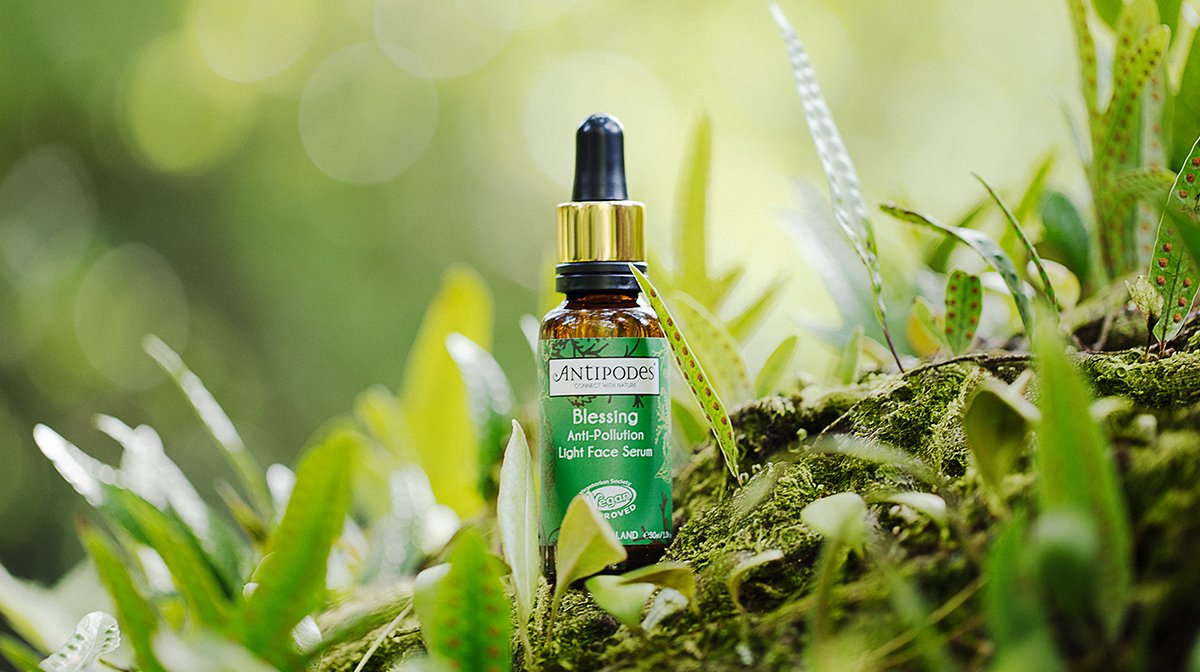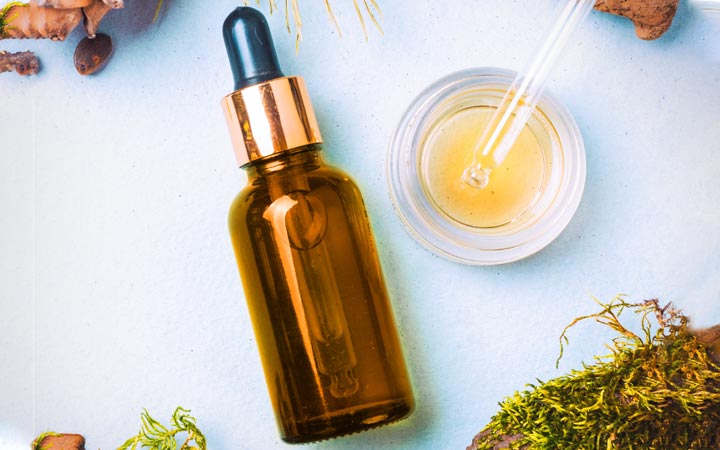From hyaluronic acid formulas that soften the appearance of wrinkles to vitamin Cs that help to cultivate a more even skin tone, serums have become a mainstay in most skincare routines. Face oil, on the other hand, is a newer category of skincare—but one that is quickly gaining in popularity. Years ago, many skincare enthusiasts would balk at the idea of adding oil to their faces. Today, marula oil and jojoba oil are among the buzziest ingredients, sought out by those looking for smoother skin. To find out more about face oils vs. serums, including when (and why) to include each in your skincare routine.
Skin Oil vs. Skin Water
Before we get into face oils vs. serums, it’s important to understand the role oil and water play in the health and function of the skin. You see, both oil and water are essential for the skin. The dermis holds collagen, elastin, and skin water to give the skin a plump and youthful appearance. The epidermis (skin barrier) contains important skin oils in the form of lipids, fatty acids, and ceramides. These oils form a barrier that prevents loss of the essential skin water. These oils, also called sebum, also help to lubricate the skin cells to give the skin a soft, smooth feel.

What Are Face Oils?
Face oils are liquid topicals that do not contain water. The exact composition of the face oil may vary, but as a rule, face oils are designed to mimic and supplement the skin’s natural sebum production. Because face oils tend to include larger molecules, their effects are typically limited to supporting the skin barrier. Linoleic acid and squalane are popular face oil ingredients as they mimic and support the skin barrier’s natural oil function.
The Benefits of Face Oils
Face oils are designed to deliver a unique balance of fatty acids and lipids to soothe and support the skin barrier. The skin barrier prevents transepidermal water loss and protects the internal body from UV radiation, pollution, viruses, fungi, and bacteria. Damage to the skin barrier can lead to skin infections and a dull appearance, as well as irritation and dehydration. (Of note: Not everyone needs barrier repair. Those with oily skin tend to produce excess oil as is, and a face oil may further compound the problem of clogged pores and acne breakouts). Depending on the type of formula, the best facial oils may wield additional benefits.
- May help to reduce signs of aging: Face oils formulated with antioxidants, such as argan oil, may help to prevent fine lines and wrinkles—and keep skin protected. The skin barrier naturally contains lipids, ceramides, and fatty acids. The production of these natural occlusives slows with age and is further worn away by environmental factors such as high wind and harsh cleansers.
- Can improve dry skin (and certain skin conditions): Those with dry skin, eczema, and/or rosacea have genetic defects in their skin barrier function and may benefit from a face oil with anti-inflammatory properties (think: evening primrose oil).
- Treats acne: Oils with antibacterial and anti-inflammatory properties, like tea tree oil, may help to reduce blackheads, whiteheads, and pimples.
What Are Serums?
A serum is a concentrated, lightweight formula that is typically applied after cleansing and toning and before moisturizing. While face oils deliver their results physically by providing structural support, serums are classically designed to penetrate into the skin and regulate its internal functions.
The Benefits of Serums
Serums have a variety of benefits depending on the specific ingredients contained in the formula. There is significant variability in the feel and function of serums and they should be chosen based on skin concerns. They can be mixed and matched to create a personalized, individual skincare routine.
- Hydrate the skin: Hydrating serums typically contain humectants, such as glycerin and hyaluronic acid, to draw water into the skin and increase the skin’s moisture.
- Deliver antioxidants: There are also antioxidant serums, like niacinamide and vitamin C, that provide antioxidant support to skin DNA.
- Regulate skin’s pigment: Serums containing tranexamic acid and glycolic acid help to normalize melanocyte activity and brighten the skin tone.
Which to Use (And When)

Face Oils
A face oil may be beneficial to those with dry and/or irritated skin, either seasonally or year-round. This includes those with eczema and rosacea. Since face oils are occlusive, they should be applied as the last step of the skincare routine after moisturizer. The goal is to lock in the good stuff and lock out the bad stuff. Those with acne or peri-oral dermatitis should exercise caution when adding a face oil to their routine, as face oils may potentially trigger a flare of these conditions.
Serums
Serums can be a great addition to any routine. The right serum for you will depend on your specific skincare needs and desires. Since serums are lightweight, they are designed to be used before moisturizers. They can also be paired with a face oil, if needed, with the moisturizer sandwiched between the serum and the face oil.

